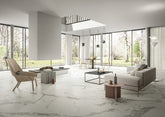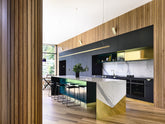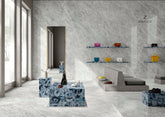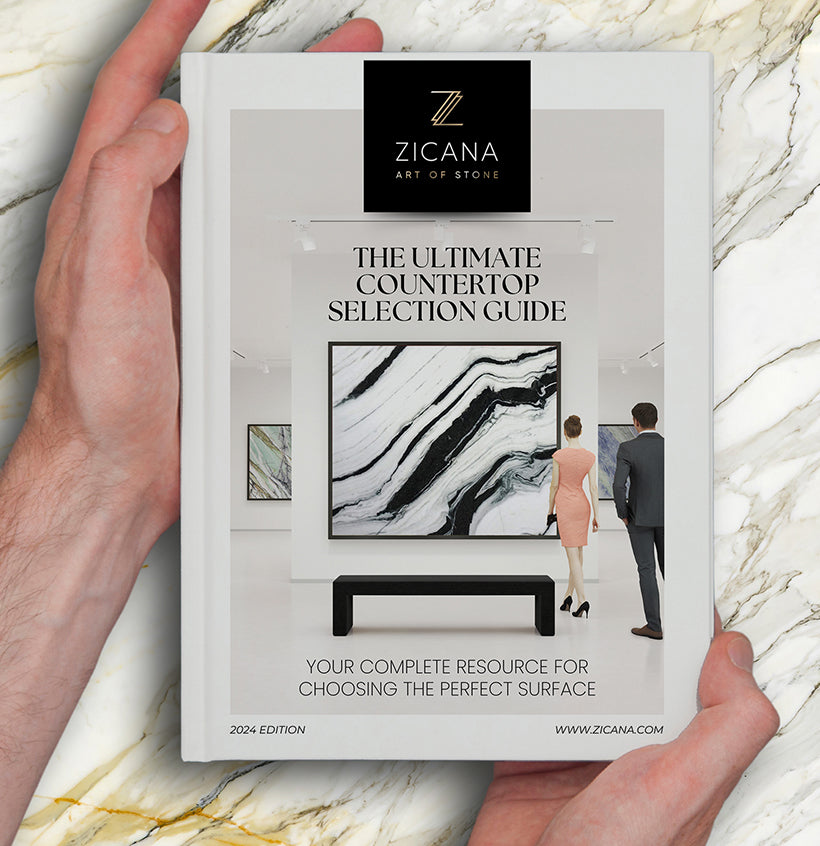Silestone vs Corian: Unveiling the Best for Luxurious Surfaces
When it comes to designing elegant and enduring surfaces, savvy homeowners and trade professionals alike face a common question: Silestone vs Corian—which surface truly stands out in terms of functionality, style, and modern luxury? At Zicana Boutique, where curated excellence and innovation in stone converge, this question is frequently at the heart of tailored design consultations. This guide takes you through a deep-dive comparison to help you confidently select the right surface for your next elevated interior project.
Understanding the Basics: What Are Silestone and Corian?
Before diving into performance metrics and design outcomes, it’s essential to understand what these two materials are and how they're made. Both are engineered surfaces and often compared due to their similar target market, but their composition and appeal differ greatly.
- Silestone is a sophisticated engineered quartz surface comprised of 90% natural quartz crystals, combining real mineral beauty with superior strength and durability. Browse Zicana’s luxurious Silestone Quartz Collection to witness the elevated beauty firsthand.
- Corian, developed by DuPont, is a solid surface material made from one-third acrylic resin and two-thirds natural minerals. While highly flexible in shape and color, it's chemically different from quartz-based surfaces and offers unique benefits in seamless fabrication.
Each material offers its own narrative in design, and choosing between them means evaluating your priorities in durability, maintenance, and aesthetics.
Aesthetic Sophistication and Visual Appeal
In luxury design circles, appearance is more than surface-level—it defines how a space breathes and feels. If you're selecting materials that anchor your kitchen or bathroom's aesthetic, this criterion deserves careful consideration.
Silestone shines in natural realism, mimicking the visual richness of marble, granite, and other natural stones through advanced pigmentation and veining techniques. Options such as those featured in our Quartz Slabs Collection and Spectrum Quartz Collection demonstrate the top-tier design intricacies that appeal to high-concept decorators and architectural firms.
Corian offers a soft, matte visual profile. It is available in a wide palette of solid colors and subtle patterns, making it ideal for ultra-modern, minimalist aesthetics. However, it lacks the depth and sparkle associated with quartz aggregates in Silestone that elevate surfaces into functional art.
For discerning eyes seeking exclusivity, elevate your space with hand-selected premium slabs from our Exclusive Offers Collection.
Durability and Wear Resistance
Luxury surfaces must do more than look beautiful—they must hold up to decades of use. Here, Silestone takes a clear lead.
- Silestone is non-porous, heat-resistant, stain-resistant, and resists scratches better than most engineered surfaces. As it contains natural quartz, one of Earth’s hardest minerals, its resilience comfortably suits the heavy demands of chef-style kitchens or high-traffic commercial environments.
- Corian is softer and more susceptible to scratching and heat. While minor damage can often be sanded out (a unique benefit to Corian), the material is more vulnerable to daily wear when compared to quartz-based options.
For professionals working on high-traffic hospitality or culinary spaces, Silestone’s superior resistance makes it the better long-term investment.
Maintenance and Upkeep
In curated living spaces, surface maintenance should support—not disrupt—a seamless lifestyle. Fortunately, both Silestone and Corian are low-maintenance options compared to natural stones like marble or granite.
Silestone requires only basic cleaning with water and mild soap. Its non-porous nature also makes it highly hygienic and resistant to bacterial growth—ideal for kitchens and bathrooms. Browse modern, low-maintenance designs in our Tessa Quartz Collection.
Corian also maintains a hygienic, non-porous surface but is more prone to showing cosmetic damage. Gentle sanding can correct minor issues, but repeated refinishing may diminish its appearance over time.
For homeowners and designers invested in flawless longevity, Silestone offers a more enduring solution—especially when paired with Zicana Boutique’s Made-to-Measure Custom Countertops service for precision installations.
Eco-Consciousness and Certification
Today’s modern luxury is deeply aligned with sustainability. Both Silestone and Corian surface lines have made strides in environmental responsibility, though in different ways.
Silestone offers eco-conscious collections like Eco Line, manufactured using recycled materials and certified by GREENGUARD and NSF for indoor air quality. Its new HybriQ+ technology even reduces the use of crystalline silica, enhancing worker safety and sustainability standards.
Corian surfaces are recyclable and certified low-VOC but generally do not match the resource reuse and environmental innovation levels of Silestone’s latest technologies.
Choosing eco-luxury materials? Explore Zicana Boutique’s evolving lineup of sustainable slabs across the Sintered Stone Slabs Collection and Porcelain Slabs Collection.
Cost and Investment Value
As with any high-end design piece, material cost should be evaluated in relation to both function and form. Corian generally comes with a lower upfront cost due to its composition and processing. Silestone, being quartz-based and often larger in size and complexity, commands a higher price range.
However, Silestone’s superior durability and design value contribute to a higher ROI, especially in luxury real estate and prestige commercial settings. Regardless of which surface you choose, Zicana Boutique extends a distinguished invitation:
Use Promo Code WELCOME100 for $100 off any order over $1,000 on your next refined surface selection.
Frequently Asked Questions
Is Silestone better than Corian for kitchen countertops?
Yes. For high-functioning spaces like kitchens, Silestone offers superior scratch and heat resistance along with a more stone-like appearance. It’s a longer-lasting, higher-performing work surface for culinary enthusiasts and busy families alike.
Can Corian look as natural as Silestone?
While Corian has come a long way in aesthetics, it still presents a more uniform, matte finish that lacks the granular depth and veining that Silestone achieves using natural quartz. For truly natural stone visuals, Silestone is the recommended choice.
Which surface is more eco-friendly?
Silestone’s newer offerings, particularly those with HybriQ+ technology, lead in eco-responsibility. These collections are made using recycled content, renewable energy, and low-silica formulations—without compromising design quality.
How do Silestone and Corian compare in terms of warranty?
Both offer robust warranties. Silestone typically provides a 25-year limited warranty, reflecting its durability and confidence in longevity. Corian’s warranty is excellent for residential use but may offer less coverage long-term by comparison.
Final Thoughts: Which Surface Should You Choose?
Choosing between Silestone and Corian ultimately comes down to goals: Silestone dominates in performance, elegance, and luxury differentiation, making it ideal for premium homes and elevated commercial installations. Corian may appeal for its low cost and seamless capabilities in minimal or utility-driven spaces.
At Zicana Boutique, we believe surface selection is a design statement—one that blends function with refined taste. Ready to take the next step in curating a space that exudes sophistication?
Explore Our Exclusive Offers Collection now, and do not forget to Use Promo Code WELCOME100 for $100 off any order over $1,000.




















